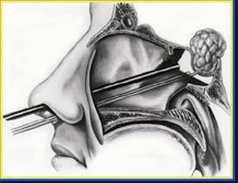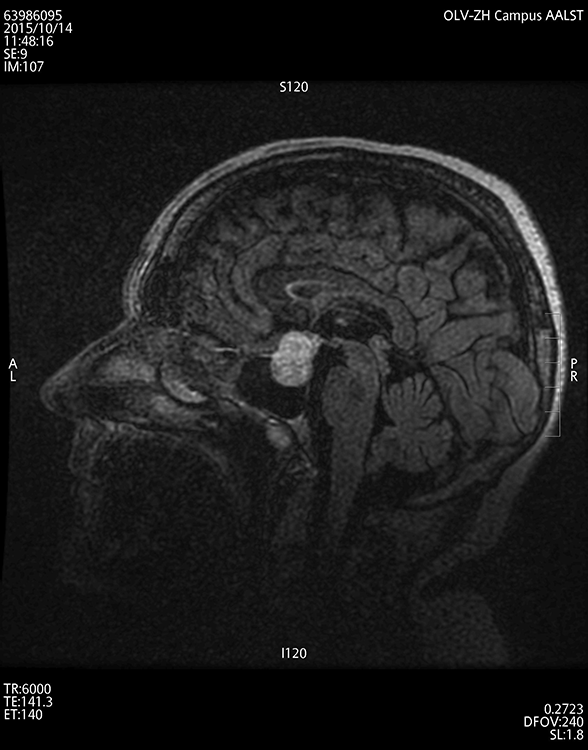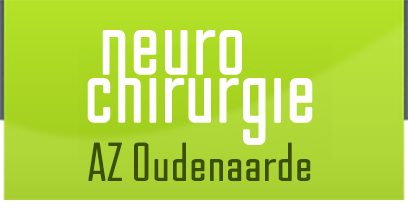Medical problems with the brain / skull
Pituitary adenomas
Pituitary adenomas are rare benign tumours of the pituitary gland. The pituitary gland is very important for the hormone balance of our body. It produces hormones that control, among others, the adrenal and thyroid gland, the water balance and growth.
The (benign) tumour may disrupt the functioning of the pituitary gland. Symptoms range from obesity to chronic fatigue, changes in the skeleton, etc. If the tumour grows, it may also cause pressure onto the optic nerve, which may lead to eye complaints and even blindness.
These tumours are often diagnosed after an endocrinological (hormonal) examination and an MR-scan. Often, they can be treated by an endocrinologist with medicines but in specific circumstances surgery will be required, for instance when the patient's sight deteriorates (due to the pressure on the optic nerve) or when an excessive hormone production cannot be kept under control with medication.
The pituitary gland is situated almost centrally in the head and thus rather difficult to reach for surgery. The easiest approach is through the nasal cavity and the sinus sfenoidalis (one of the paranasal sinuses).
 In recent years, endoscopic surgery has become standard practice. In such operations, a camera is introduced
into the nasal cavity, creating a much clearer and bigger image of the surgical field. The surgeon also make
use of neurological navigation so that he can at all times
establish his exact location in the patient's head or tumour.
In recent years, endoscopic surgery has become standard practice. In such operations, a camera is introduced
into the nasal cavity, creating a much clearer and bigger image of the surgical field. The surgeon also make
use of neurological navigation so that he can at all times
establish his exact location in the patient's head or tumour.
The surgical operation is done very carefully, taking the utmost care to restrict the damage to the environment of the tumour to the maximum extent possible as the tumour is surrounded by important structures.
After the operation, patients will usually stay on the intensive care department. If, on the day after surgery, there are no major problems and the brain scan looks good, they are brought to the ordinary nursing ward for further care.
This operation is well tolerated and does not cause much pain. Most patients can already return home after four or five days. In the first weeks after surgery, patients mainly suffer from a stuffy nose and sometimes also from an unpleasant smell and taste.

